LTL Trucking - My Linehaul Job
Topic 4501 | Page 18

December Pay History
Figured I'd post my earnings for the month of 12/14. I'm doing this to show what a rookie linehaul driver can make. I do work for a well paying LTL company, and we aren't union. I'm at base pay scale right now, .57 cpm. Eventually in two years I'll reach top pay, which will be in the low 60s cpm. As always, my motive for doing this educational. Some potential drivers might not know anything at all about LTL, let alone the amount of money a driver can earn as a linehaul driver.
The fluctuation you see is because I was still on a wild schedule for the majority of the month. I would cover different schedules or move freight that need moved and therefore I didn't always have long runs. Most linehaul drivers have set scheduled runs, so their pay is almost always consistent on a weekly basis. Keep in mind that I elected to have 10% of my gross taken off the top, pre-tax, for my 401k contribution. My company has generous matching, so I try to take advantage of that. Our benefits are also deducted pre-tax, and weekly it comes to about $80 for our family plan. Short term and long term disability is deducted after taxes. So, generally when I try to figure out what my paycheck might be if I know the gross, I'll take 10% from gross and subtract $80 before I calculate taxes. I always just estimate for taxes by taking an additional 25%. That usually brings me pretty close to my net.
These figures are taken directly from my pay sheet, so they aren't estimates. The graph didn't translate over well when I copied and pasted, but you can see the 5 sets of figures, they'll match up in order w/ the above descriptions. Again, tax-exempt deductions include my 10% for 401k and our family plan of health benefits. Non tax exempt deductions are short / long term disability. At our company, solo drivers are eligible for free benefits if they aren't covering a dependent(s), and of course 401k is optional, as is disability. So technically, I could've netted a lot more.
11/28-12/4 Gross Earnings - Tax-Exempt Ded - Non Tax-Exempt Ded - Taxes = Net Earnings 1,587.98 239.15 16.67 338.34 993.82
12/05-12/11 Gross Earnings - Tax-Exempt Ded - Non Tax-Exempt Ded - Taxes = Net Earnings 1,461.50 226.50 16.00 303.29 915.71
12/12-12/18 Gross Earnings - Tax-Exempt Ded - Non Tax-Exempt Ded - Taxes = Net Earnings 1,345.64 214.91 15.38 273.48 841.87
12/19-12/25 Gross Earnings - Tax-Exempt Ded - Non Tax-Exempt Ded - Taxes = Net Earnings 783.03 158.65 12.40 128.66 483.32
The last week was short because of time off. We got Christmas as a paid holiday, but Christmas Eve we were off w/o pay. I also had some time off since there was a drop between my last schedule and the new schedule after the rebid. I didn't take the time to post the associated miles and accessory pay, just wanted to give a quick glimpse of a month of earnings for a rookie linehaul driver.
LTL:
Less Than Truckload
Refers to carriers that make a lot of smaller pickups and deliveries for multiple customers as opposed to hauling one big load of freight for one customer. This type of hauling is normally done by companies with terminals scattered throughout the country where freight is sorted before being moved on to its destination.
LTL carriers include:
- FedEx Freight
- Con-way
- YRC Freight
- UPS
- Old Dominion
- Estes
- Yellow-Roadway
- ABF Freight
- R+L Carrier
Linehaul:
Linehaul drivers will normally run loads from terminal to terminal for LTL (Less than Truckload) companies.
LTL (Less Than Truckload) carriers will have Linehaul drivers and P&D drivers. The P&D drivers will deliver loads locally from the terminal and pick up loads returning them to the terminal. Linehaul drivers will then run truckloads from terminal to terminal.CPM:
Cents Per Mile
Drivers are often paid by the mile and it's given in cents per mile, or cpm.
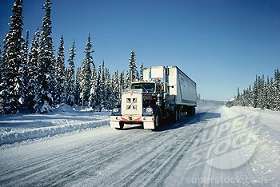
When I ran line haul I made as much OR equavelent to an OTR driver ...when I started to diversify in 1990 ..
there should be no arguements here .. IT should be a matter of the preference of what a person want's to do in this industry . I'm not understanding why it's proceeding to earnings potentials ?
My counsin which was at one time a O/O then a co. driver ..then a co instructor ....now back to OTR driver ...and just cleared$ 51,000 in 2014 ..he just started driving in 1997 ..w/ willis shaw .. (now w/ works for CDN logistics ..
a line driver I know as well just cleared , approx .48,000$ + benefits ...at UPS / YELLOW / USF reddaway "union they make more .." worker w/ them at fred meyers in 1991-93 ..until we were all laid off ...some went back OTR /some stayed line haul ..
so ,, folks were all in this boat together ,, and are here to back each other , and share info.
OTR:
Over The Road
OTR driving normally means you'll be hauling freight to various customers throughout your company's hauling region. It often entails being gone from home for two to three weeks at a time.
Line Haul:
Linehaul drivers will normally run loads from terminal to terminal for LTL (Less than Truckload) companies.
LTL (Less Than Truckload) carriers will have Linehaul drivers and P&D drivers. The P&D drivers will deliver loads locally from the terminal and pick up loads returning them to the terminal. Linehaul drivers will then run truckloads from terminal to terminal.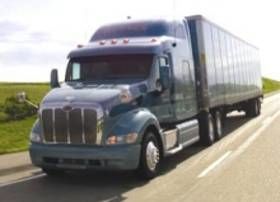
Hey 6, I know what you mean about the night work. I can tell you this. I as a former prof pilot would do days into nights , then switch during a week over to night shift to days. Talk about tired? Go from starting your days at 0500, getting home around 1930-2000 and do over for a few days then swap that to nights. Exhausting. Not nearly the rest people need. I always wished for either all days or all nights. I'll take all nights anyday over that flip flop crap! You just have to find that "happy" place and deal with the hand dealt I suppose. Drive safe and thx for the PM time. Im sure I'll be in touch .... Don

Jon, I'm not sure what your point is. Nobody is arguing here. This thread is about LTL trucking and my linehaul job. The reason why this thread was started was to shed a little light on this sector of the trucking industry, especially since OTR gets the majority of the attention. Granted, LTL jobs aren't as prevalent as OTR jobs, and there's a reason for that. Regardless, my main reason in starting this thread was to show potential / new drivers that there are other options out there besides OTR, if somebody is in the right location.
As a husband and father with a young family, I almost made a decision that wouldn't have been the best decision for my family, simply because I wasn't initially aware of my options. That's the point of this thread - to pay it forward by bringing some attention to LTL for those potential drivers out there that don't want to go OTR, or who look at OTR as simply a means to an end. I'm hoping I can help somebody know about a potential option they might have. In fact, I know I already have done this, which brings me a lot of joy.
Posting my pay history is relevant because first off, it's part of my experience as a linehaul driver (the topic of this thread), and secondly, it shows folks the kind of money that can be made as a linehaul driver. It's the kind of money that might enable a family to not only just pay the bills, but perhaps allow more financial freedom and stability.
So, nobody is arguing here. And as you said, it's all about sharing info. This thread is about LTL trucking, my linehaul job, and the hope is that it makes people aware of options they otherwise might not have known about.
LTL:
Less Than Truckload
Refers to carriers that make a lot of smaller pickups and deliveries for multiple customers as opposed to hauling one big load of freight for one customer. This type of hauling is normally done by companies with terminals scattered throughout the country where freight is sorted before being moved on to its destination.
LTL carriers include:
- FedEx Freight
- Con-way
- YRC Freight
- UPS
- Old Dominion
- Estes
- Yellow-Roadway
- ABF Freight
- R+L Carrier
OTR:
Over The Road
OTR driving normally means you'll be hauling freight to various customers throughout your company's hauling region. It often entails being gone from home for two to three weeks at a time.
Linehaul:
Linehaul drivers will normally run loads from terminal to terminal for LTL (Less than Truckload) companies.
LTL (Less Than Truckload) carriers will have Linehaul drivers and P&D drivers. The P&D drivers will deliver loads locally from the terminal and pick up loads returning them to the terminal. Linehaul drivers will then run truckloads from terminal to terminal.HOS:
Hours Of Service
HOS refers to the logbook hours of service regulations.
...
Air line and electrical line connections from dolly to tail trailer.
...
This post reminds me of a question I had while working thru the High Road program. It had to do with connecting the air lines properly ... if I recall correctly it says that if you accidently cross the airlines, connecting the tractor service line to the trailer supply/emergency connection and tractor supply line to the trailer service conncection, you'll know it when the trailer parking brakes fail to release when you push the trailer parking brake control. Don't both lines supply air to the trailer? Why wouldn't the tractor service air line be able to supply enough air to release the trailer spring brakes?
(Don't mean to clutter your thread, 6 String, but the pics reminded me of it and I don't think my question merits a new thread...)

Indy, I'd venture to say that the answer to your question can be thought of like this. The service line supplies air which is controlled by the foot valve (brake pedal). The emergency line supplies the air needed to maintain a continual air pressure. This air pressure is what holds back the springs that engage those trailer brakes when there is no air pressure. So, both lines supply air for the air brake system, but they each have their own function.
HOS:
Hours Of Service
HOS refers to the logbook hours of service regulations.
Indy, I'd venture to say that the answer to your question can be thought of like this. The service line supplies air which is controlled by the foot valve (brake pedal). The emergency line supplies the air needed to maintain a continual air pressure. This air pressure is what holds back the springs that engage those trailer brakes when there is no air pressure. So, both lines supply air for the air brake system, but they each have their own function.
lets also remember that this system also features a DUAL system ( and there P/S or primary /secondary ) so if the primary fails the secondary automatically takes over .. w/ out any action from the driver ...
the service system cannot be checked on the rear trailer unless the trailer ( johnson bar OR trailer air supply is applied and "service valve opened " ) I used to use a bungie cord ) ..some drivers just figured the if the emergency side worked then service side did as well ,,,or applied the trailer test valve ...and tested that way ,unless you had a team driver ( we drove team @ fred Meyers Portland Or. in 1991) tripples from Clackmas(portland ) Or. . to SLC Ut. & back to Clackmas Or )..
I never counted on fail safe ...I wanted to know ..so if DOT was doing inspection in the Gorge scales on I- 84 I wouldnt get busted w/ inoperative service brakes ..
DOT:
Department Of Transportation
A department of the federal executive branch responsible for the national highways and for railroad and airline safety. It also manages Amtrak, the national railroad system, and the Coast Guard.
State and Federal DOT Officers are responsible for commercial vehicle enforcement. "The truck police" you could call them.
HOS:
Hours Of Service
HOS refers to the logbook hours of service regulations.
Indy, I'd venture to say that the answer to your question can be thought of like this. The service line supplies air which is controlled by the foot valve (brake pedal). The emergency line supplies the air needed to maintain a continual air pressure. This air pressure is what holds back the springs that engage those trailer brakes when there is no air pressure. So, both lines supply air for the air brake system, but they each have their own function.
Makes sense now...Thanks!
HOS:
Hours Of Service
HOS refers to the logbook hours of service regulations.
New favorite piece of equipment (or kit, as the Brits like to call it) - the headlamp! Yeah, looks like you're going spelunking, but it's been awesome having my hands free to hook and break sets. Mine has an adjustment where you can tilt the light in increments, so it's great for different views depending on how your standing, e.g. face down or looking straight ahead. I've gotten so used to it, that I've packed extra AAA rechargeable batteries in case it dies, even though I have two other small flashlights I carry in my backpack.
So, the headlamp is an indispensable piece of equipment for the night shift linehaul driver. I'd highly recommend it.
Linehaul:
Linehaul drivers will normally run loads from terminal to terminal for LTL (Less than Truckload) companies.
LTL (Less Than Truckload) carriers will have Linehaul drivers and P&D drivers. The P&D drivers will deliver loads locally from the terminal and pick up loads returning them to the terminal. Linehaul drivers will then run truckloads from terminal to terminal.New Reply:
New! Check out our help videos for a better understanding of our forum features

















Preview:
This topic has the following tags:
Advice For New Truck Drivers Choosing A Trucking Company Doubles and Triples Linehaul LTL Driving Truck Driving Lifestyle






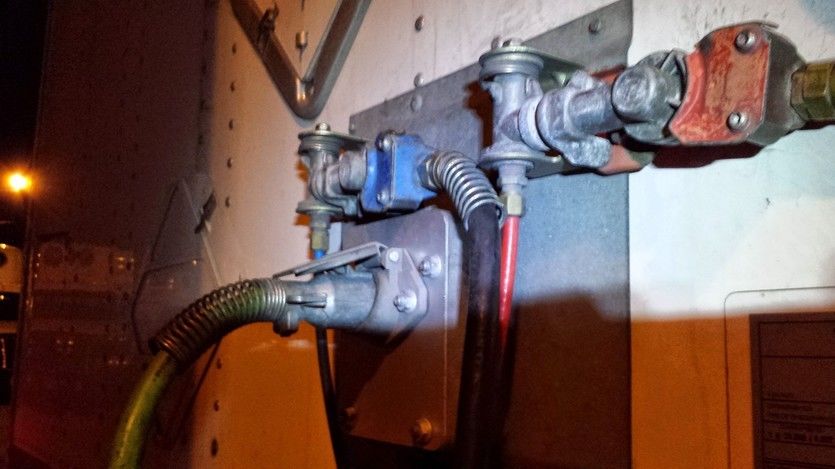

 TT On Facebook
TT On Facebook
Quick Photo Detail of Double Bottom Rig
I would've liked to have taken more pictures, but I work at night, so it can be tough to get good photographs. I snapped a few quick shots last night to illustrate what I wrote a few posts above. In doing a pre-trip, there is so much more to it than what I'm about to show with pictures, but the main spots I always observe are shown below. Every time I approach my rig, I'm looking at these spots - every time I leave a terminal or rest stop - whether I just got done building the set or am returning from a potty break.
From tractor to tail trailer ... here we go.
Air line and electrical connections secure from tractor to lead trailer.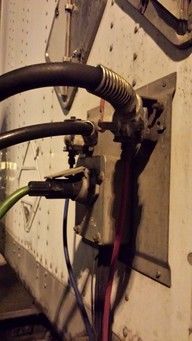
5th wheel of tractor - no gaps between bolt and washer, no gaps between 5th wheel and apron of the trailer. Safety latch secure.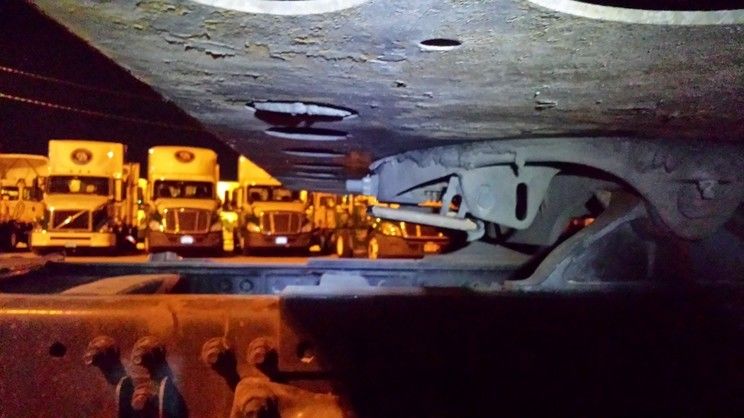
Overview picture of dolly between lead and tail trailer.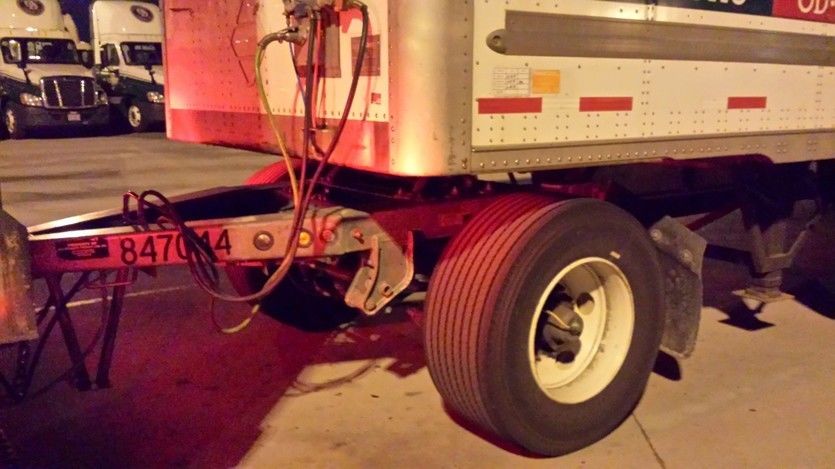
Looking down at lead trailer and front of dolly - air line and electrical connections secure, pintle hook is closed, chain is secure, air line connections are in open position.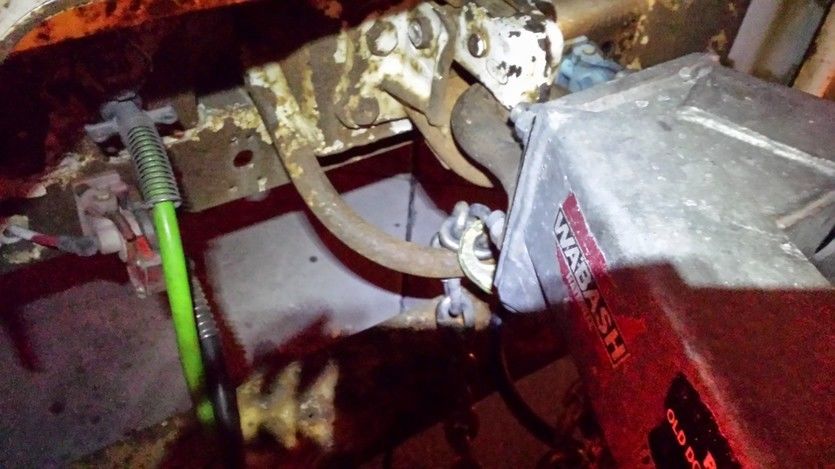
Gotta make sure that chain is secure.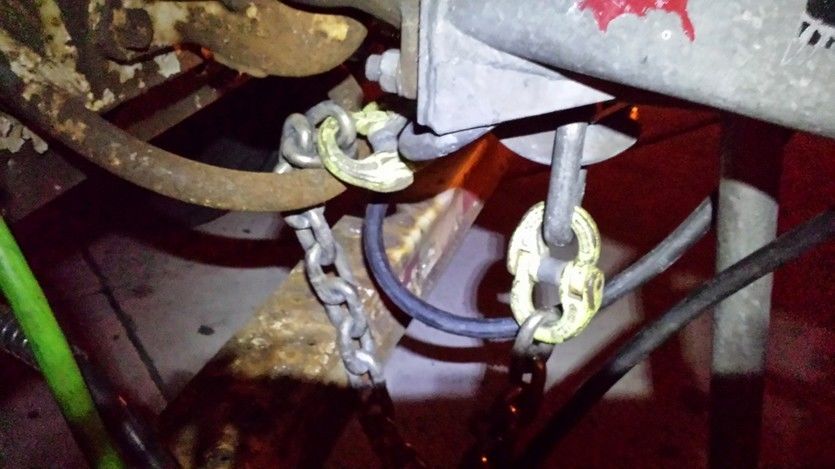
Dolly valve (aka pet c o c k valve) is in correct position so air is charging the system and not leaking.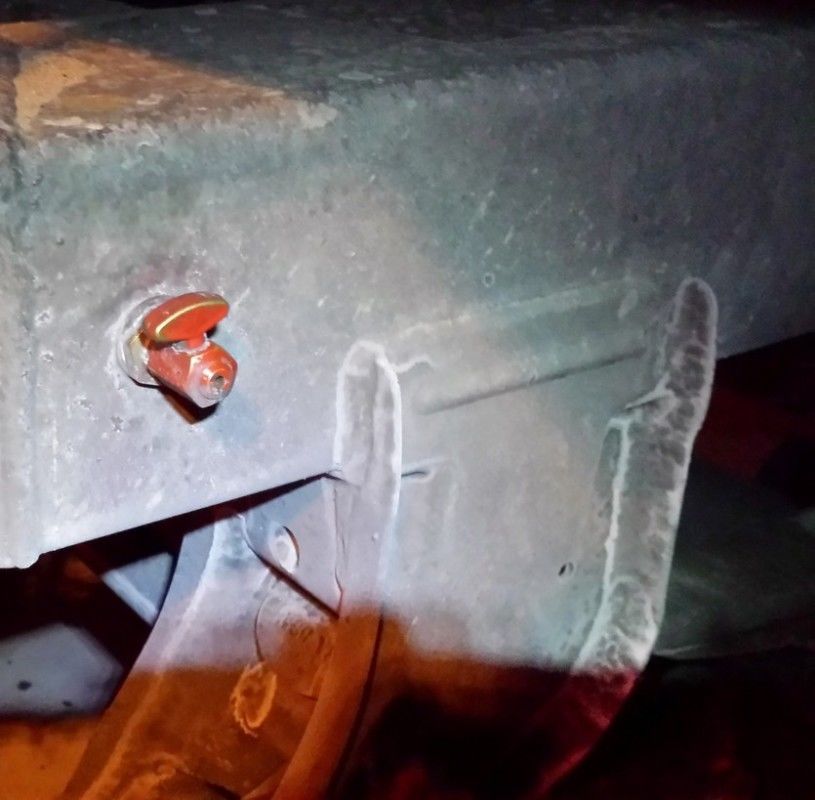
Dolly 5th wheel - same as tractor 5th wheel. Notice the pet c o c k valve.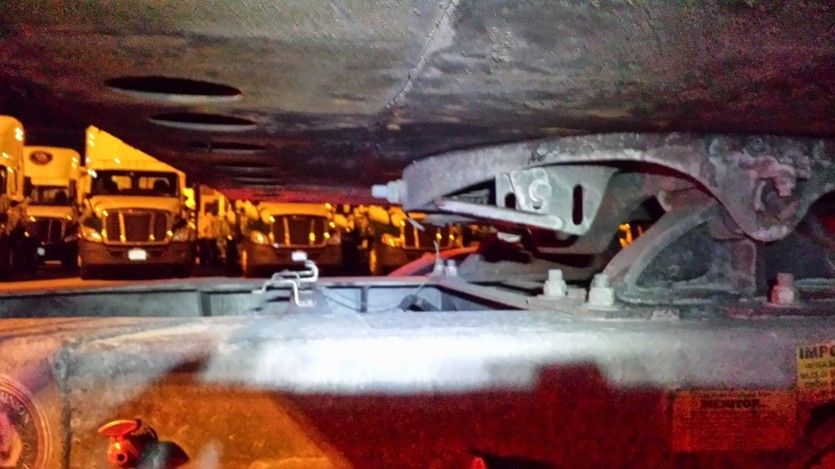
Air line and electrical line connections from dolly to tail trailer.
Air line connections on tail trailer are in off or closed position. Pintle hook is down ( to prevent gauging the bumper of a 4 wheeler if you get rear ended).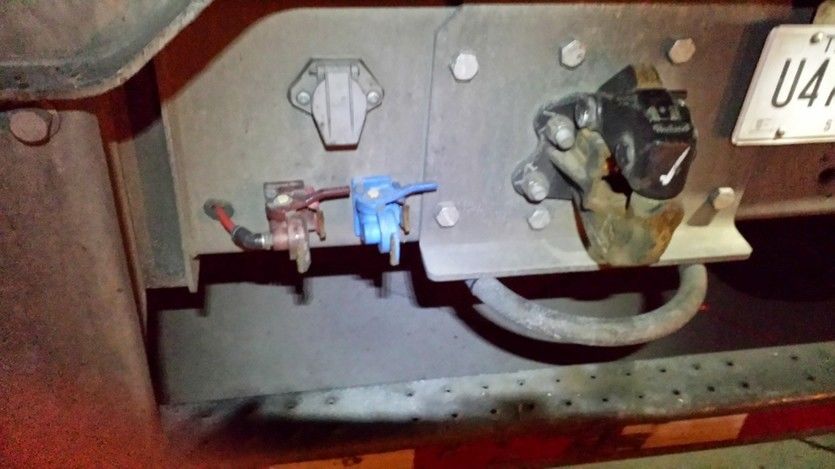
If I had software to write text on the photos, I would've done so. I'm using a Chromebook, and they're somewhat limited. Hope this photo gallery helps a little in showing a double bottom rig, especially the dolly between the two trailers.
Terminal:
A facility where trucking companies operate out of, or their "home base" if you will. A lot of major companies have multiple terminals around the country which usually consist of the main office building, a drop lot for trailers, and sometimes a repair shop and wash facilities.
OWI:
Operating While Intoxicated